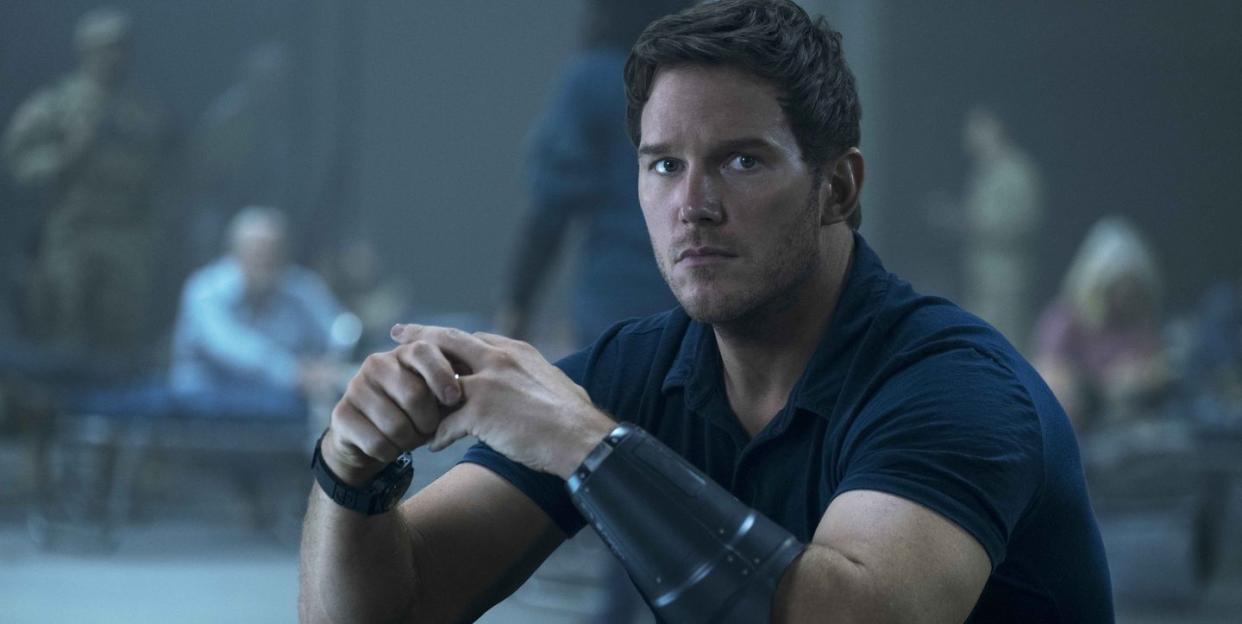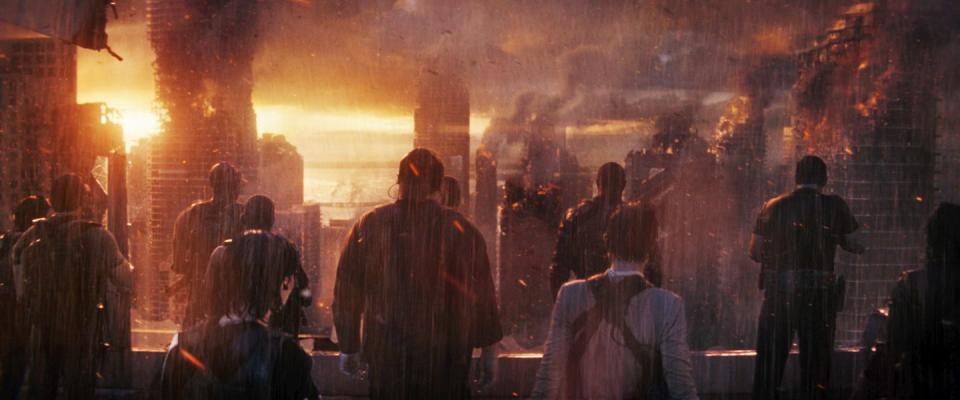Chris Pratt's The Tomorrow War has a much darker ending than you thought

- Oops!Something went wrong.Please try again later.
Chris Pratt's The Tomorrow War was so successful that a sequel was confirmed only weeks after its Amazon Prime debut. While the story in itself feels like one with a firm conclusion, given the film's time-travel premise there's always more to explore.
The movie follows high-school science teacher and army veteran Dan as he is drafted for a war in the future. Time-travelling soldiers come from 2053 bringing a message of doom: they're losing a war against aliens and need more people.
Of course when Dan arrives in the future he becomes part of a plot to save the world that is far more complicated than simply 'point gun at alien and shoot'. Warning: The Tomorrow War spoilers follow.
The film rests on a paradox, which is that in the future he and his grown-up daughter Muri (Yvonne Strahovski) develop a toxin to kill the lead female alien. Dan and his cohorts, after returning to the past, are successful, but by doing so they stop the war from ever happening, meaning Muri will never develop the toxin because there's no need for it.
In addition, all of the 'present-day' soldiers taken to the future are selected because they already are dead by 2051. Muri reveals to her father that in her timeline, Dan was so distraught at being unable to do something magnificent and change the world that he develops depression and leaves the family, then dies in a car accident.
In the 'main timeline' of the film itself, even though Dan saves the world, he is unable to save future Muri, who dies in 2051. Though, we assume, present-day child Muri lives a long and happy life.

But.
This Redditor posited that The Tomorrow War is based on an immutable future theory. In this case, no matter what happened during the war, Dan will always develop depression and/or PTSD and therefore always leave his family, always die in a car crash, leaving Muri to mourn him.
Now, the hint that Dan has PTSD and/or depression comes in two places. First, at the beginning of the film, when Dan doesn't get the job he wanted, he kicks the garbage bins across the street. At the end of the film, right after destroying the aliens in a near-fatal battle, before even going to see his wife and daughter, he brings the bins back.
While it can be viewed as a full-circle happy moment, in fact, his preoccupation with this familiar task is a feature of combat stress reaction and PTSD.

Of course, if we take the Tenet theory of time travel, which is at best confusing and at worst a total mindf**k, Dan could be part of a loop that always ends in his death in a car crash due to combat-induced PTSD.
The other option, less miserable but equally bad, is that Dan didn't destroy all of the White Spikes — and given how murky the battle was, it's pretty safe to assume that at least one might have gotten away — and all of his efforts, and Muri's sacrifice, amounted to nothing. This would result in another loop situation.
Either way, the supposedly happy ending for Dan and his family certainly has a big grey cumulo-nimbus hanging over their collective heads. One which will certainly, we hope, be explored in the sequel.
The Tomorrow War is available to watch on Amazon Prime Video
Blockbusters are back – and the latest edition of Digital Spy Magazine has got everything you need to know about the summer's biggest box office arrivals. Read every issue now with a 1-month free trial, only on Apple News+.
Interested in Digital Spy's weekly newsletter? Sign up to get it sent straight to your inbox – and don't forget to join our Watch This Facebook Group for daily TV recommendations and discussions with other readers.
You Might Also Like

